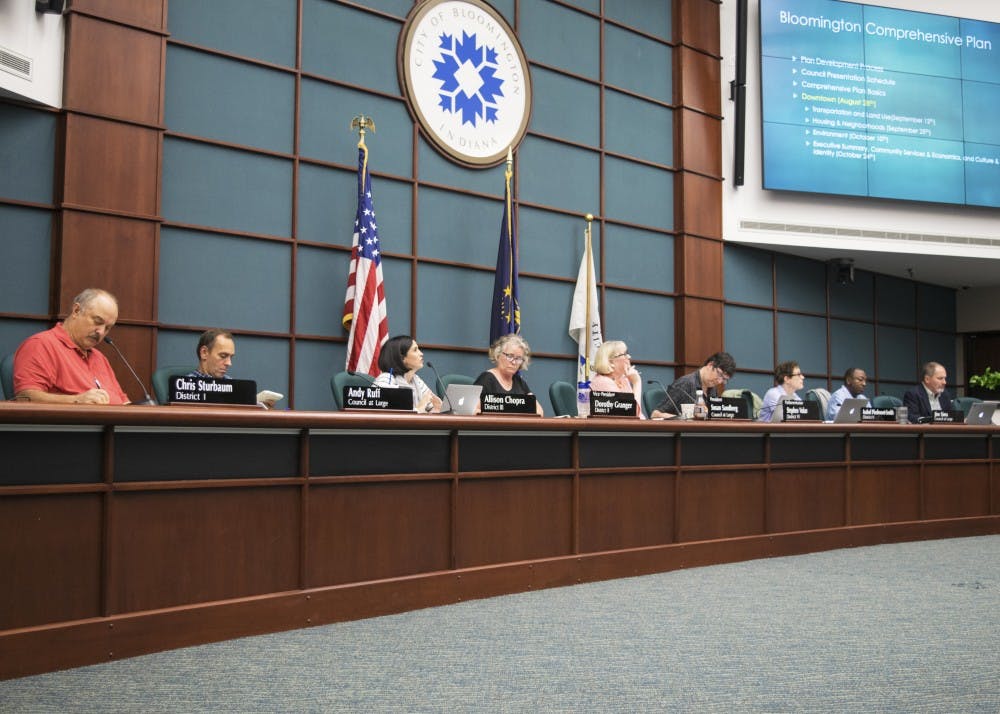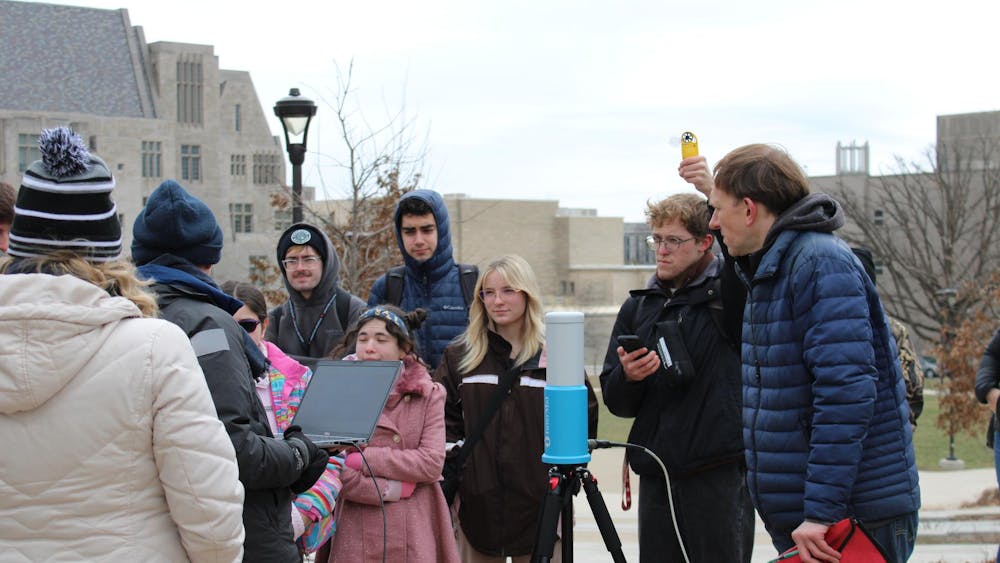Housing issues, population density, and the perception that the city caters to college students over longtime residents were once again on the agenda at the Bloomington City Council meeting on Monday.
Chapter five of the City of Bloomington Comprehensive Plan regarding housing and neighborhoods sparked over two hours of housing-related debate from the council.
Scott Robinson, Planning Services Manager of the Planning and Transportation department, spoke on behalf of the chapter and how it could benefit community.
The four goals of the chapter include housing affordability, planning and design, housing supply and neighborhood stabilization. The primary proposition of the recommendation is to implement supply-side solutions to solve the issue of housing in Bloomington.
“If you have the means to come to Bloomington, it’s a cheap place to live, but if you reside in Bloomington and work here it could get quite expensive,” council member Dave Rollo said.
Over the course of the meeting, council members raised concerns about allegedly vague or ambiguous wording within the chapter, the same issue brought up when the fourth chapter was reviewed in August. Members also took issue with a seeming lack of initiative to address root issues like the income gap and instead focus on cosmetic problems like physical housing.
“If we’re just addressing affordable housing and we aren’t addressing incomes, I think we may get halfway toward a goal,” Rollo said.
Council member Isabel Piedmont-Smith countered this point, noting that improving housing and neighborhoods will help the city retain, develop and attract quality jobs to help the whole community.
Members also discussed the accuracy of the information cited in chapter five. Council member Allison Chopra asked Robinson whether more current data than the 2010 census could be used to determine income information for this undertaking, and council member Stephen Volan asked whether it was skewed by the amount of college students who don’t report an income.
A major pillar of the proposal is the encouragement of transitioning from single-family to multifamily housing in order to increase density in Bloomington’s limited living spaces. Council member Chris Sturbaum expressed concern for this push and asked for more specific language to be introduced to the proposal.
“I’m seeing more of this kind of language that has this open-ended language," Sturbaum said. "We should have more duplexes, triplexes, but we don’t have the space to make that happen. I don’t want loose language to open doors that we haven’t intended.”
When asked to point to specifically vague language in the proposal, Sturbaum pointed to a passage regarding the way that innovation will foster vibrancy in new neighborhoods.
“This is good if you’re building a neighborhood or starting fresh, but we’re not,” Sturbaum said.
When the time came for public comment, Deborah Myerson, executive director of South Central Indiana Housing Opportunities, also expressed displeasure with some wording, specifically regarding the area median income in Bloomington. The chapter does not differentiate between low and extremely low income brackets, and Myerson said that lumping these brackets together does not do them justice.
“This could inadvertently bypass lower incomes,” Myerson said. “We’re talking about housing, and homelessness is not even addressed in this chapter.”
She urged the council to consider a robust housing analysis like that done in the city of Madison, Wisconsin. Madison formed the Housing Strategy Committee, which is responsible for submitting a biennial housing analysis to the Mayor and the Common Council. It provides information on housing trends and strategies to increase affordable housing in the city.
“Even though we chose the longest schedule available to us, after her comments I’m convinced that we need more time,” Volan said of Myerson. “The devil’s in the details.”
Adding to the list of potential edits to the plan, council member Dorothy Granger said she thought goals related to actual home ownership were missing.
"There’s not a lot of focus or goal on moving people to their own homes,” Granger said.
Sturbaum returned to the original goal of the meeting, saying there was an economic impact when single family houses are converted into multifamily rentals.
"People sell, people can’t afford to buy and become owners again because property is being purchased by investors," he said.
But Piedmont-Smith pushed back against Sturbaum's comment.
“I also want to emphasize that this is a guidance document. It’s meant to be general. Overall, I feel that he is speaking from a place of real privilege to say: ‘leave our wonderful historic districts alone,’” Piedmont-Smith said.
As the discussion of housing drew to a close, Volan urged the council to note that chapter five currently expands programs that serve the middle class while only maintaining programs that serve low and extremely low-income households.
“There is a severe deficit in this document and it’s not because it’s not specific enough,” Volan said.
The Common Council members now have until Tuesday, Oct. 3 to submit amendments regarding chapter five of the City of Bloomington Comprehensive Plan.
Members of the public can also submit amendments so long as their amendment is sponsored by a member of council. Contact information for the council is available on its website.






